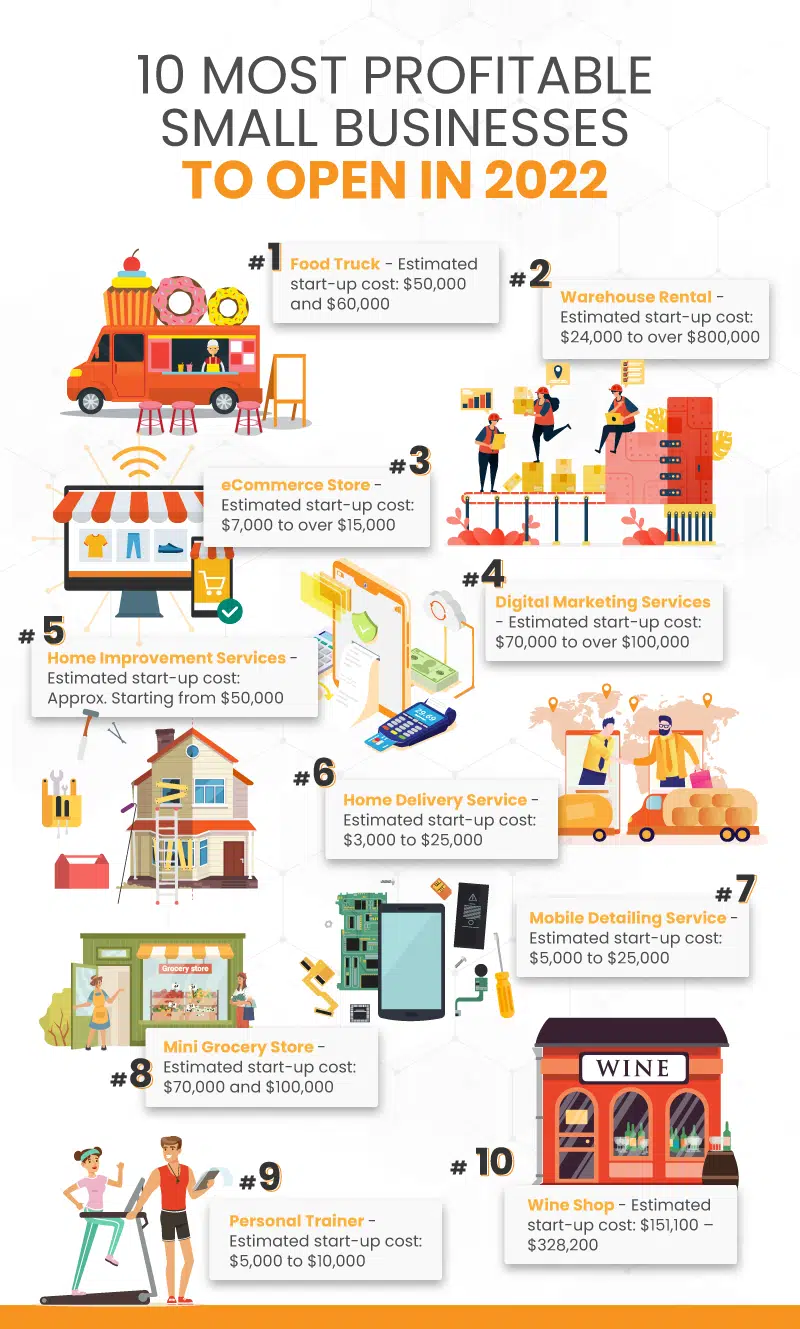Successful Businesses in Small Towns
Small towns, often overlooked in the bustling shadow of urban centers, have quietly become fertile ground for thriving businesses. While challenges like limited populations and resources exist, these close-knit communities offer unique advantages—lower operational costs, loyal customer bases, and opportunities to fill underserved niches. From family-owned restaurants and boutique shops to innovative tech startups, small-town entrepreneurs are leveraging creativity, local pride, and digital connectivity to build sustainable ventures. Their success stories highlight how adaptability, community engagement, and strategic use of regional strengths can overcome geographic limitations. As remote work and consumer preferences evolve, small towns are proving that big ambitions can flourish in unexpected places.
Thriving Ventures: Unveiling the Secrets of Successful Businesses in Small Towns
1. The Power of Community Engagement
Successful small-town businesses prioritize community engagement to build loyalty and trust. By sponsoring local events, collaborating with nearby schools, or offering discounts to residents, these businesses foster strong relationships. For example, a café might host weekly trivia nights, becoming a social hub.
See Also What Are the Pros/cons of the Different Vc Exit Strategies?
What Are the Pros/cons of the Different Vc Exit Strategies?| Strategy | Impact |
|---|---|
| Sponsor local events | Increases brand visibility |
| Collaborate with schools | Builds generational loyalty |
| Personalized service | Enhances customer satisfaction |
| Collect feedback | Improves offerings |
| Loyalty programs | Encourages repeat visits |
2. Identifying Niche Markets
Small towns often lack diverse services, creating opportunities for niche businesses. A boutique selling handmade crafts or a farm-to-table restaurant can thrive by addressing unmet needs. Researching gaps in the local market ensures relevance.
| Niche Idea | Target Audience |
|---|---|
| Organic grocery store | Health-conscious residents |
| Vintage clothing shop | Fashion enthusiasts |
| Pet grooming services | Pet owners |
| Agritourism experiences | Tourists & locals |
| Specialty coffee roastery | Coffee lovers |
3. Leveraging Local Resources
Businesses in small towns benefit from local resources, such as agricultural products or artisan talent. A bakery using locally sourced flour or a workshop employing town carpenters reduces costs and supports the regional economy.
See Also What Do Venture Capital Lawyers Do What Do They Assist Venture Capitalists in What Are Their Day to Day Tasks Like
What Do Venture Capital Lawyers Do What Do They Assist Venture Capitalists in What Are Their Day to Day Tasks Like| Resource | Business Application |
|---|---|
| Farm produce | Farmers' markets, restaurants |
| Artisan crafts | Retail stores, online shops |
| Historical sites | Tour guide services |
| Local labor | Skilled trade businesses |
| Natural landscapes | Outdoor recreation ventures |
4. Adapting to Digital Expansion
Even in small towns, digital tools are critical for growth. A brick-and-mortar store can expand its reach through e-commerce, social media marketing, or online booking systems, attracting customers beyond town limits.
| Digital Strategy | Benefit |
|---|---|
| E-commerce website | Access to national markets |
| Social media ads | Targeted local promotions |
| Online ordering | Convenience for customers |
| Virtual consultations | Expand service range |
| Email newsletters | Retain customer interest |
5. Embracing Sustainable Practices
Sustainability resonates strongly in small towns, where eco-friendly practices align with community values. Businesses like zero-waste stores or solar panel installers gain traction by promoting environmental responsibility.
See Also What Vcs or Angel Investors Are Interested in the Food Industry
What Vcs or Angel Investors Are Interested in the Food Industry| Sustainable Practice | Business Example |
|---|---|
| Reusable packaging | Zero-waste grocery stores |
| Renewable energy | Solar-powered cafes |
| Local sourcing | Farm-to-table restaurants |
| Upcycled products | Furniture refurbishment shops |
| Energy-efficient equipment | Green manufacturing units |
What is the most profitable business in a small town?

Essential Retail and Convenience Stores
In small towns, essential retail businesses like grocery stores, pharmacies, or convenience stores often thrive due to consistent local demand. These businesses cater to daily needs, reducing reliance on distant urban centers. Key factors include:
- Low competition: Limited options increase customer loyalty.
- Recurring revenue: Daily necessities ensure steady sales.
- Community trust: Personalized service builds long-term relationships.
Healthcare and Wellness Services
Healthcare providers, such as clinics, dental offices, or physical therapy centers, are highly profitable in small towns with aging populations or limited medical access. Advantages include:
- High demand: Critical for residents without easy travel options.
- Insurance partnerships: Stable payment structures.
- Niche specialization: Services like elder care or chronic disease management.
Home Repair and Maintenance Services
Skilled trades like plumbing, electrical work, or HVAC repair are lucrative due to the constant need for home upkeep. Profit drivers include:
- Limited local expertise: Few competitors dominate the market.
- Emergency service premiums: Higher charges for urgent repairs.
- Contract opportunities: Partnerships with local businesses or landlords.
Small towns often have agricultural roots, making businesses like organic farming, equipment rentals, or feed stores profitable. Key aspects:
- Local sourcing trends: Demand for fresh, farm-to-table products.
- Seasonal scalability: Diversify with farmers' markets or agritourism.
- Government subsidies: Grants for rural development.
Online-First Businesses with Local Ties
Combining digital reach with local relevance—such as e-commerce for handmade goods, niche blogging, or remote tech support—offers high margins. Success factors:
- Low overhead: Operate from home with minimal infrastructure.
- Global audience: Sell locally made products worldwide.
- Hybrid models: Use online platforms for orders with local pickup/delivery.
Which business is best for a small city?

Essential Retail Services for Daily Needs
In small cities, businesses that fulfill daily necessities are often sustainable due to consistent demand. A grocery store or convenience store can thrive by offering fresh produce, household items, and locally sourced goods. Tailoring inventory to local preferences, such as organic products or regional specialties, enhances appeal. For example:
- Neighborhood markets with rotating seasonal stock.
- Pharmacy hybrids combining health products and basic groceries.
- Subscription-based delivery for elderly or busy residents.
Community-Focused Food and Beverage Establishments
Small cities benefit from social hubs like cafes, bakeries, or family-owned restaurants. These businesses foster community connections while meeting dining needs. Prioritizing locally sourced ingredients or unique themes (e.g., farm-to-table) can differentiate them. Consider:
- Cozy coffee shops with free Wi-Fi for remote workers.
- Specialty bakeries offering gluten-free or vegan options.
- Pop-up food stalls at local events to build visibility.
Local Service Providers Enhancing Convenience
Service-oriented businesses like laundromats, salons, or repair shops address everyday challenges. Emphasizing flexible hours and personalized service can attract loyal customers. Key opportunities include:
- Mobile pet grooming for busy pet owners.
- Tech repair services for smartphones and computers.
- Childcare centers with extended hours for working parents.
Health and Wellness Businesses Supporting Active Lifestyles
Wellness-focused ventures, such as fitness studios, yoga centers, or health food stores, cater to growing demand for self-care. Partnerships with local healthcare providers can boost credibility. Ideas include:
- Affordable gym memberships with community classes.
- Holistic wellness shops selling supplements and natural remedies.
- Outdoor fitness groups leveraging parks or trails.
Home Improvement and Maintenance Solutions
With many residents owning homes, businesses like hardware stores, landscaping services, or interior design consultancies are valuable. Offering DIY workshops or tool rentals adds extra appeal. Potential models:
- Seasonal garden centers with planting guides.
- Eco-friendly renovation services using sustainable materials.
- Handyman platforms connecting locals with skilled workers.
What small businesses are most profitable?

1. Online Retail and E-commerce Businesses
Online retail remains one of the most profitable small business models due to low overhead costs and global reach. Entrepreneurs can leverage platforms like Shopify or Amazon to sell niche products, from handmade goods to subscription boxes. Key advantages include:
- Scalability: Easily expand product lines or target audiences without physical store limitations.
- Dropshipping: Minimize inventory costs by partnering with suppliers for direct shipping.
- Digital marketing: Use social media ads and SEO to drive traffic at a fraction of traditional advertising costs.
2. Food and Beverage Ventures
The food industry offers high-profit opportunities, especially in specialty niches like organic snacks, coffee shops, or meal prep services. Businesses with low startup costs and recurring revenue models thrive:
- Food trucks: Lower overhead than restaurants, with flexibility to target events or high-footfall areas.
- Subscription boxes: Curated gourmet foods or health-focused snacks attract loyal customers.
- Baking/catering: High margins on custom orders for weddings, corporate events, or holidays.
3. Health and Wellness Services
Growing demand for self-care and fitness makes this sector highly lucrative. Small businesses can capitalize on trends like personalized wellness plans or mental health support:
- Personal training/yoga studios: Offer hybrid online/in-person sessions to maximize reach.
- Supplement brands: Develop niche products (e.g., vegan protein powders) with direct-to-consumer sales.
- Mental health apps: Subscription-based platforms for meditation or therapy sessions.
4. Home Improvement and Cleaning Services
Home-focused businesses benefit from consistent demand, especially in real estate boom areas. Low competition in specialized services boosts profitability:
- Pressure washing: High ROI with minimal equipment investment.
- Smart home installation: Cater to homeowners seeking energy-efficient upgrades.
- Eco-friendly cleaning: Use non-toxic products to attract health-conscious clients.
5. Digital Marketing and Content Creation
With businesses prioritizing online presence, digital marketing agencies and freelance content creators are in high demand. Profitability stems from repeat clients and diverse service offerings:
- SEO services: Help businesses rank higher on search engines for steady income.
- Social media management: Charge monthly retainers for content creation and analytics.
- Video production: Create ads or tutorials for brands, leveraging platforms like YouTube or TikTok.
Which business is best in rural areas?

1. Agriculture and Agri-Based Businesses
Rural areas often have abundant land and natural resources, making agriculture and related ventures highly viable. These businesses can leverage local labor and traditional farming knowledge while tapping into growing demand for organic and locally sourced products.
- Organic farming: High demand for chemical-free produce in urban markets.
- Livestock rearing: Profitable for dairy, poultry, or meat production.
- Agro-processing: Value-added products like jams, oils, or dried goods.
2. Rural Retail and Supply Stores
Establishing local retail hubs addresses the lack of access to essential goods in remote areas. These stores can specialize in daily necessities, farming supplies, or affordable household items.
- Multi-purpose stores: Offer groceries, tools, and fertilizers.
- Seed and fertilizer distribution: Critical for farming communities.
- Affordable electronics: Basic devices like mobile phones or solar lamps.
3. Eco-Tourism and Hospitality Services
Rural regions with natural beauty or cultural heritage can capitalize on eco-tourism. Homestays, guided tours, and adventure activities attract urban tourists seeking authentic experiences.
- Homestays or guesthouses: Low-cost lodging for travelers.
- Adventure tourism: Hiking, birdwatching, or river rafting.
- Cultural workshops: Traditional crafts, cooking, or farming experiences.
4. Renewable Energy Solutions
Many rural areas lack reliable electricity, creating opportunities for solar, wind, or biogas energy systems. These businesses align with sustainability trends and government subsidies.
- Solar panel installation: For households and small businesses.
- Biogas plants: Convert agricultural waste into energy.
- Microgrid services: Community-based power distribution networks.
5. Skill Development and Training Centers
Providing vocational training empowers rural populations with skills for entrepreneurship or employment. Focus areas include agriculture, crafts, and technology.
- Agricultural training: Modern farming techniques and equipment use.
- Handicraft workshops: Preserve traditions while creating marketable products.
- Digital literacy programs: Bridge the technology gap for youth.
Frequently Asked Questions (FAQs)
What Types of Businesses Thrive in Small Towns?
Specialty retail stores, service-based businesses, and niche food establishments often excel in small towns. These ventures capitalize on local demand, limited competition, and community loyalty. For example, a boutique offering handmade crafts or a café using locally sourced ingredients can attract both residents and tourists. Additionally, essential services like plumbing, electrical work, or healthcare providers tend to succeed due to consistent demand. Businesses that embrace hyper-local branding and foster personal connections with customers are more likely to build long-term success in smaller communities.
How Can Small Town Businesses Compete with Larger Chains?
Small businesses can leverage their community-focused identity, personalized service, and agility to stand out. Unlike large chains, they can quickly adapt to customer preferences or market shifts. Emphasizing unique selling points, such as locally made products or curated experiences, helps differentiate them. Collaborating with other local businesses for events or promotions also strengthens visibility. Additionally, digital tools like social media and e-commerce platforms enable small-town entrepreneurs to reach broader audiences while maintaining a local touch.
What Are Common Challenges for Small Town Businesses?
Limited customer bases, seasonal fluctuations, and infrastructure constraints (e.g., internet access or shipping logistics) pose challenges. To overcome these, businesses must diversify revenue streams—for instance, combining in-store sales with online marketplaces. Building a strong online presence helps mitigate geographic limitations. Additionally, fostering community support through loyalty programs or partnerships ensures steady patronage. Businesses must also plan for seasonal peaks, such as tourism spikes or holiday sales, to maximize profitability during high-demand periods.
How Important Is Community Involvement for Success?
Community engagement is critical for small-town business sustainability. Participating in local events, sponsoring youth teams, or collaborating with nonprofits builds trust and brand loyalty. Customers in small towns often prioritize businesses that contribute to the area’s well-being. For example, a bookstore hosting author readings or a farm offering educational workshops creates value beyond transactions. This involvement not only drives foot traffic but also turns customers into brand advocates, amplifying word-of-mouth referrals—a powerful marketing tool in tight-knit communities.
Leave a Reply

Our Recommended Articles